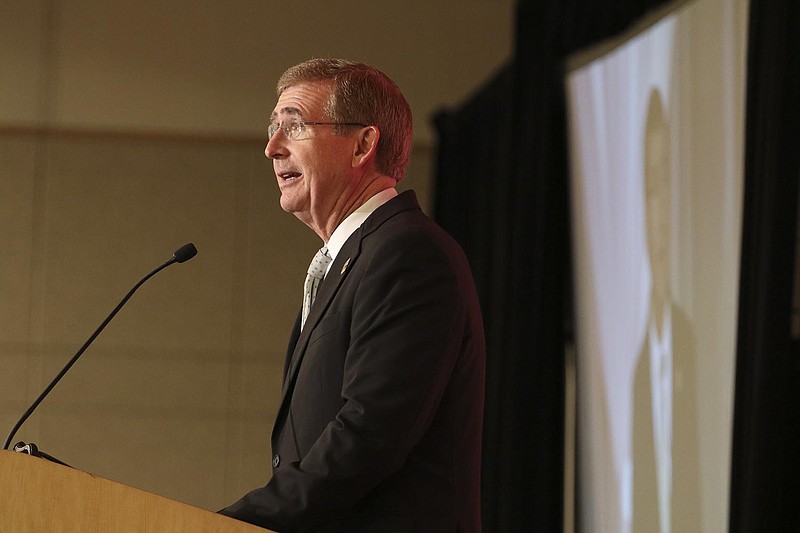Colleges across the nation are pushing back against President Donald Trump's travel ban targeting seven Muslim-majority countries, and here the University of Tennessee at Chattanooga says it will continue to promote diversity and inclusion on its campus.
Sixteen students enrolled in classes at UTC this semester are from three of the seven countries included in the travel ban, said Takeo Suzuki, executive director of UTC's Center for Global Education. The students are not traveling at this time, he said, so the ban is not directly affecting them.
In a letter to the UTC community, Chancellor Steven Angle said the university is working to "understand the implications of this order and its changing application."
The school's priority is the safety and well-being of the campus community, Angle said. And UTC is offering support and assistance to students from the seven countries named in the order.
"We are committed to a diverse campus and to preparing students for success in a global economy," Angle wrote. "That means recruiting, retaining, and supporting faculty, staff, and students from different cultures around the world."
Suzuki said UTC routinely works with students planning international travel.
"And we are encouraging those who are citizens of or were born in one of these seven countries listed in the executive order to not travel abroad without consultation with our office first," Suzuki said by email.
Trump's order, signed Friday, brought legal travel from Iraq, Syria, Iran, Sudan, Libya, Somalia and Yemen to a halt for at least three months. The order also suspends the U.S. Refugee Resettlement Program for at least four months. After the initial bans, the nation will accept travelers only from countries with "sufficient safeguards" to ensure the "security and welfare of the United States."
The order prompted protests across the nation, and a small protest was held in Chattanooga Sunday, with a larger protest planned for tonight.
Academic experts argue the executive order, which comes as universities are going through fall applications, potentially will weaken the country's role as an international leader in higher education and research. Supporters of the president's order, including many Republicans in Tennessee, say the move will make the nation safer. They applauded Trump for moving quickly.
More than 12,000 academics - including 7,000 U.S. faculty members and 40 Nobel laureates - have signed a petition opposing the order.
Seven of the top 10 universities in the world are in the United States.
The country's legacy of academic excellence has drawn scholars from all over the world. Universities argue the travel ban likely will harm the nation's ability to attract the diverse group of scholars needed to compete with the rest of the world in research and development.
The Tennessean contributed to this report.
Contact staff writer Kendi A. Rainwater at krainwater@timesfreepress.com or 423-757-6592. Follow on Twitter @kendi_and.
